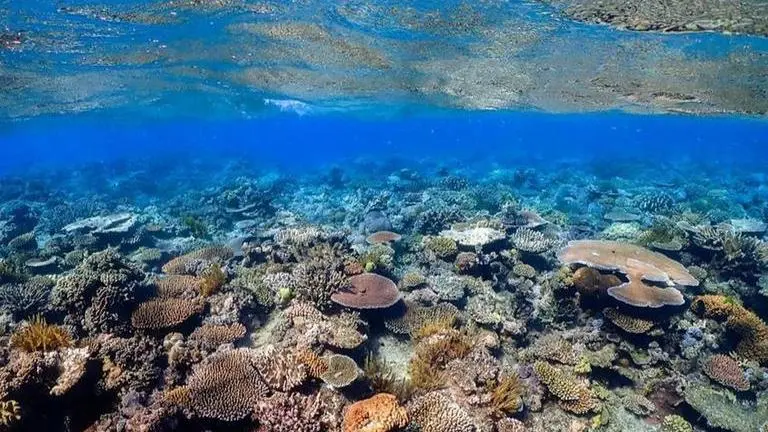Updated 4 December 2020 at 20:57 IST
Australia's Great Barrier Reef drops to 'critical' status in IUCN list
The condition of Australia's Great Barrier Reef is in a “critical state and deteriorating” as climate change warms up the waters in which it lies, IUCN said.
- World News
- 2 min read

The condition of Australia's Great Barrier Reef is in a “critical state and deteriorating” as climate change warms up the waters in which it lies, an international conservation group said. According to the latest report by International Union of Conservation of Nature (IUCN), the coral reef, which is considered one of the most diverse ecosystems in the world has lost more than half of its reef in the past three decades. In addendum, coral bleaching since 2016 has worsened its health adversely affecting marine life.
“A third (33 per cent) of natural World Heritage sites are threatened by climate change, including the world’s largest coral reef, the Great Barrier Reef, assessed as having a “critical” outlook for the first time,” IUCN warned in a statement.
'Critical'
In its latest report, IUCN also noted that the health of the Great Barrier Reef has worsened moving it from “significant concern” to “critical”. Citing concern, the conservation organisation highlighted that the reef suffered its third mass coral bleaching in five years during the 2019-20 summer. Progress towards safeguarding the reef under a long-term sustainability plan through to 2050 has been slow and it has not been possible to stop its deterioration, the report concluded.
Advertisement
Earlier this year, scientists in Australia revealed that the Great Barrier Reef has suffered one of the most extensive coral bleaching events in March 2020 raising concerns as the reefs recovered less each time after the process. This was the third extensive bleaching in over the last five years. Director of the ARC Centre of Excellence for Coral Reef Studies at James Cook University, Terry Hughes, said that February 2020 was the hottest month on record in the Great Barrier Reef since records began in 1900, as per a news agency report.
Advertisement
Image: www.iucn.org
Published By : Riya Baibhawi
Published On: 4 December 2020 at 20:57 IST
